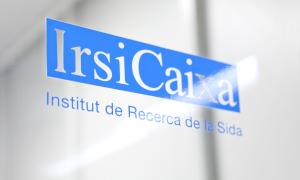25 years studying the immune system

The IrsiCaixa AIDS Research Institute celebrates its 25th anniversary as an international center of reference in the field of HIV and infectious diseases. The research at IrsiCaixa is now expanding to other challenges in biomedicine, such as cancer, microbiome, emerging neurodegenerative pathologies and infectious diseases.
The IrsiCaixa AIDS Research Institute celebrates the 25th anniversary of their inauguration on January 12, 1995. During those 25 years, AIDS has changed from a life-threatening to a chronic illness, and people living with HIV nowadays have the same life expectancy as the rest of the population. The way has been full of challenges, but the achievements in research allowed IrsiCaixa to keep progressing and to expand its focus on other fields of biomedicine, such as microbiome, emerging infectious diseases or cancer.
“One of the star questions that we have to answer related to basic research is which is the ‘immediate utility’ of what we are researching. In fact, it is said that the British Government asked Michael Faraday about the utility of ‘that thing called electricity’”, says Bonaventura Clotet, director of IrsiCaixa. “In the case of AIDS, everything we have learned over the past years studying the immune system now provides us with invaluable knowledge that can be applied on many other fields of biomedicine. If we know the immune system, we can better understand how diseases are triggered and, consequently, how to prevent and treat them”, he adds.
The science of the immune system
HIV attacks cells of the immune system – CD4 lymphocytes – that are important to structure the immune response against external pathogens. In recent years, IrsiCaixa has been able to specialize in the role that the immune system plays in everything related to health, thanks to the vast amount of knowledge that they have gained doing research.
One of the areas that is closely linked to the immune system is the microbiome, a field deeply studied at IrsiCaixa since 2012. It has been demonstrated that diseases have an impact on the millions of microbes that populate the gut and also the importance of those microbes to face diseases. The role of the microbiome in infectious diseases, neurodegenerative disorders or even aging is currently being investigated.
In addition, work is being done to strengthen the immune response to vaccines. Other recent lines of research at the institute include the study of new vaccines for cancer and for infectious diseases such as Ebola and syphilis.
HIV, caught between a rock and a hard place
When IrsiCaixa was created, with the support of “la Caixa” and the Government of Catalonia, antiretroviral therapy was not available in Spain yet and people with HIV had no other choice than trying to have the best quality of life until the time of death. The breakthroughs in research approach researchers closer to a possible cure.
Among others, IrsiCaixa discovered how HIV spreads throughout the body; obtained unprecedented results in therapeutic vaccine models for infected people, and coordinated the international consortium IciStem, which evaluates the role of bone marrow transplantation in the cure of HIV.
Work is still under way to cure/eradicate the HIV infection through multiple technologies including gene therapy, stem cell transplantation, therapeutic and preventive vaccines against the virus, modified immunoglobulin design, or viral reservoir reactivation. Aging in HIV+ people is also being studied, and efforts are being made to minimize the toxicity of treatments, end the resistances and design new treatments. “The challenges we face are encouraging. An infinite horizon that we face with strength and wishful thinking”, concludes Clotet.